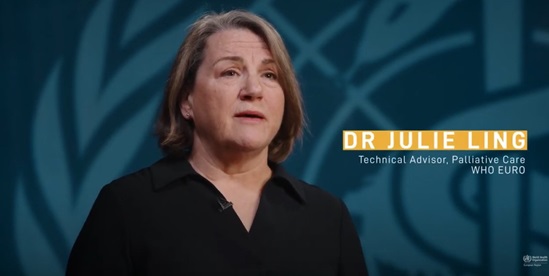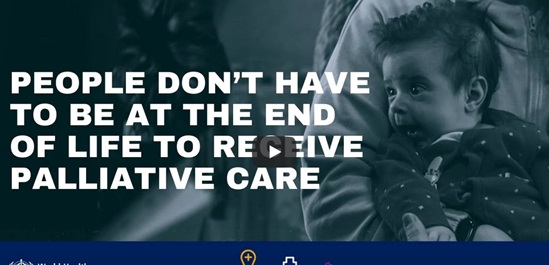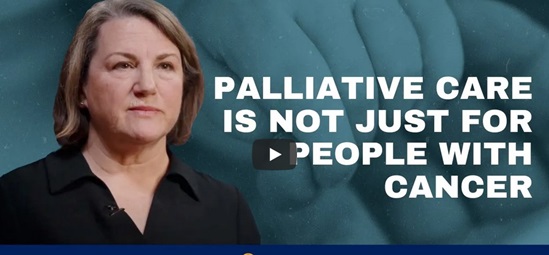Palliative care
WHO defines palliative care as an approach that improves the quality of life of patients – adults and children – and their families who are facing problems associated with life-threatening illness. It prevents and relieves suffering through the early identification, impeccable assessment and treatment of pain and other problems, whether physical, psychosocial, or spiritual.
Palliative care should be available to everyone who needs it regardless of their age, diagnosis, or geographical location. Although originally associated only with the care of people with cancer, in recent times palliative care in the WHO European Region has developed and is now available, in many countries, to people with other life-limiting conditions. In some countries in the Region, a range of palliative care services are available for neonates, children and young people and their families.
Palliative care uses a team approach to support and improve the quality of life of patients and their caregivers. It offers a support system to help patients live as actively as possible until death. This includes addressing their holistic needs – physical, psychosocial, and spiritual – and providing bereavement support.
As populations age in the WHO European Region and the incidence of noncommunicable diseases increases, the need for palliative care is also predicted to increase. The effective management of pain and other symptoms not only improves the quality of life of patients and their families but can also reduce unnecessary interventions and hospitalization.
The main barriers to people accessing palliative care are that:
- palliative care is not included in the national policies, strategies, and guidelines of many countries;
- health care professionals have limited palliative care knowledge and skills;
- there is limited information on palliative care available for the public;
- investment in palliative care service provision is often inadequate; and
- pain control and symptom management are an integral part of the provision of palliative care – in the Region, there are disparities in access to and the consumption of strong opioids and other medicines used in palliative care. Many countries have limited or restricted access to strong opioids.
Palliative care is most effective when considered early in the course of illness. The integration of palliative care at an early stage both improves the quality of life for patients and their families and reduces unnecessary hospitalizations and the use of health-care services. Ultimately there is a need to integrate palliative care into health and social care systems with a focus on primary care.
WHO/Europe in collaboration with partners provides technical assistance on palliative care to Member States in the WHO European Region. It supports countries by:
- integrating palliative care into health services
- improving access to quality health services for people requiring palliative care
- developing and promoting palliative care education and training for health care workers
- strengthening palliative care policy and services
- increasing awareness about the benefits of palliative care
- improving access to essential medicines for pain and symptom management.
In 2014, the first ever global resolution on palliative care called upon the Member States of WHO to improve access to palliative care as a core component of health systems, with a focus on primary health care and community or home-based care. This resolution was welcomed in the Region, where many governments committed to strengthening palliative care. To increase awareness about palliative care, WHO/Europe developed a series of tools to highlight palliative care, including the factsheet ‘Palliative care in the WHO European Region: a call for action’ (WHO 2020).










